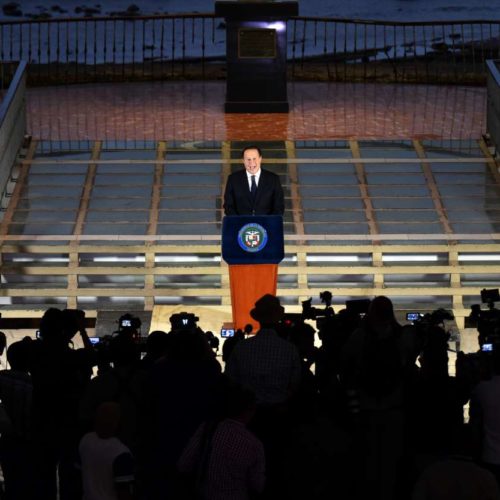Introduction
Panama’s leaders were defiant after the Panama Papers scandal broke open April 3 via hundreds of news stories circling the globe.
President Juan Carlos Varela’s chief of staff, Álvaro Alemán, called the disclosures about suspect dealings inside the country’s offshore financial industry a “campaign against Panama.”
“We will not allow Panama to be used as a scapegoat,” Alemán told a news conference.
Some of Panama’s anger was focused on the OECD, a Paris-based, multinational coalition that has been a key protagonist in the war over cross-border tax evasion. On April 4, the Organization for Economic Cooperation and Development’s secretary general, Angel Gurría, called out Panama as a “holdout” amid the world’s progress toward financial transparency.
Luis Miguel Hincapié, Panama’s deputy foreign minister, responded with a letter blasting Gurría for making “allegations and insinuations whose falsity is easily demonstrated.” He said the Panama Papers were being used to “distort the facts and tarnish the reputation of the country.”
As pressure grew from media and governments around the world, Panamanian officials shifted to a more conciliatory stance.
On April 19, President Varela announced Panama was willing to join an OECD-sponsored initiative that encourages members to share information with other nations trying to track offshore tax dodging. Hincapié headed to Paris in May to discuss the details.
The OECD praised the deal as a sign Panama was stepping up to join the fight against offshore-fueled corruption.
But in a country where top-drawer lawyers move freely between high government posts and law firms selling secrecy-cloaked shell companies, bringing lasting change to the offshore industry is a challenge. The revolving door between Panama’s government and its shadow economy has prompted some critics to refer to President Varela’s top advisers as his “offshore cabinet.”
Read more in Accountability
Accountability
Pakistani PM disqualified by court over Panama Papers links
The Supreme Court of Pakistan has voted unanimously to disqualify Nawaz Sharif from the prime ministership over offshore assets
The Panama Papers
Panama Papers probe wins a Scripps Howard award
Cross-border investigation takes fourth major American journalism prize



Join the conversation
Show Comments